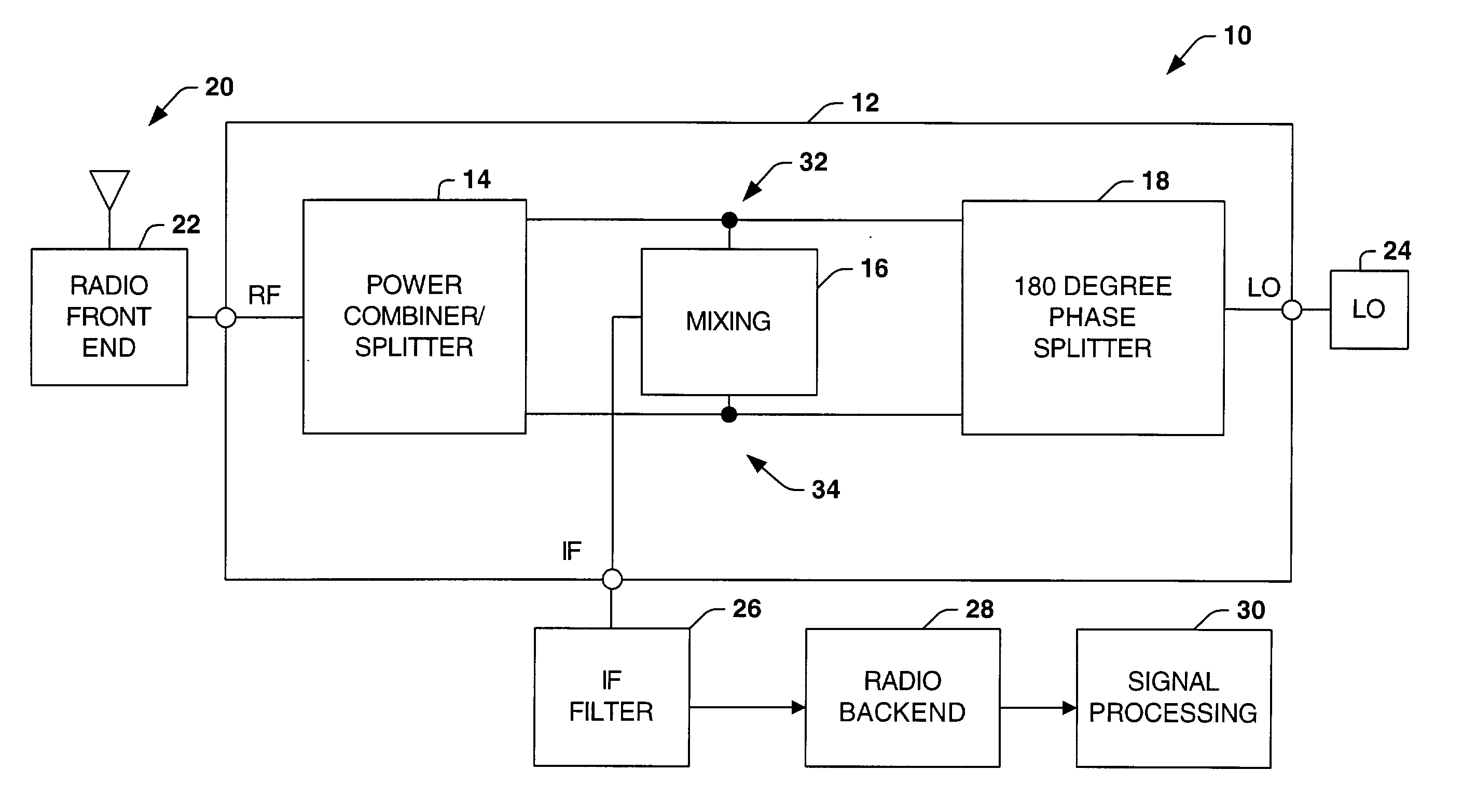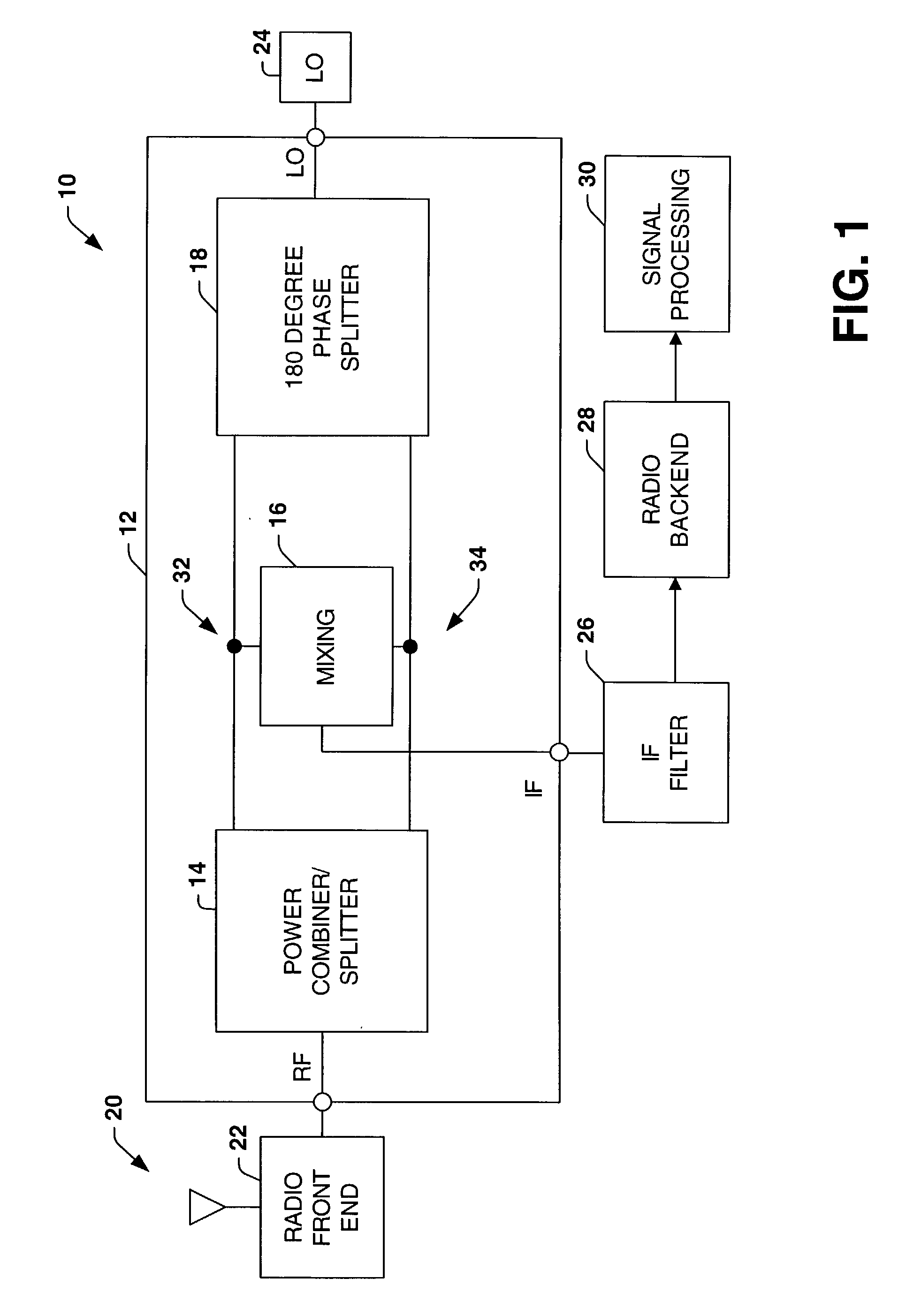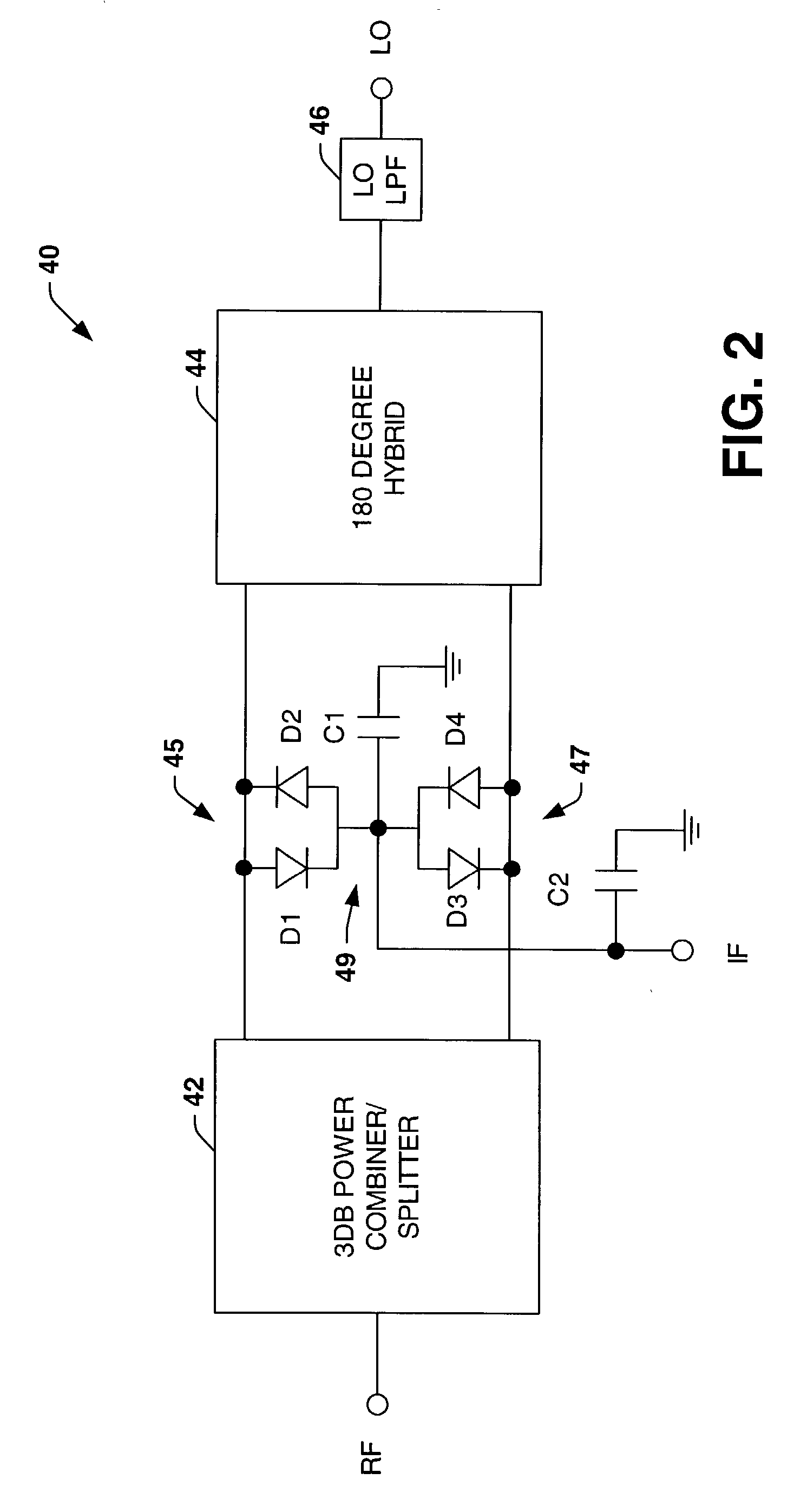Balanced sub-harmonic mixed
a sub-harmonic mixed and balanced technology, applied in the direction of modulation transference by distributed inductance and capacitance, basic electric elements, waveguide type devices, etc., can solve the problems of narrow bandwidth, single-ended mixer, limited dynamic range, poor inter-port isolation, etc., and achieve high frequency
- Summary
- Abstract
- Description
- Claims
- Application Information
AI Technical Summary
Benefits of technology
Problems solved by technology
Method used
Image
Examples
Embodiment Construction
[0020] The present invention relates to a wide band mixer topology that mitigates local oscillator (LO) leakage. The LO signal is provided to a 180 degree splitter (e.g., a 180 degree hybrid) that provides a first intermediate LO signal and a second intermediate LO signal 180.degree. out of phase from one another. Since both the first and second intermediate LO signals are 180.degree. out of phase, the fundamental LO leakage is mitigated at the RF port by the in-phase combination of the 180.degree. out of phase LO tones canceling one another out and providing strong LO / RF rejection. An RF or microwave input signal (e.g., about 1 GHZ to about 100 GHZ) is provided to a power splitter (e.g., a 3 dB power combiner / splitter) to provide a first intermediate RF signal and a second intermediate RF signal. Both the first intermediate RF signal and the second intermediate RF signal are in phase with the RF input signal and have a power level about one-half of the power level of the RF input s...
PUM
 Login to View More
Login to View More Abstract
Description
Claims
Application Information
 Login to View More
Login to View More - R&D
- Intellectual Property
- Life Sciences
- Materials
- Tech Scout
- Unparalleled Data Quality
- Higher Quality Content
- 60% Fewer Hallucinations
Browse by: Latest US Patents, China's latest patents, Technical Efficacy Thesaurus, Application Domain, Technology Topic, Popular Technical Reports.
© 2025 PatSnap. All rights reserved.Legal|Privacy policy|Modern Slavery Act Transparency Statement|Sitemap|About US| Contact US: help@patsnap.com



